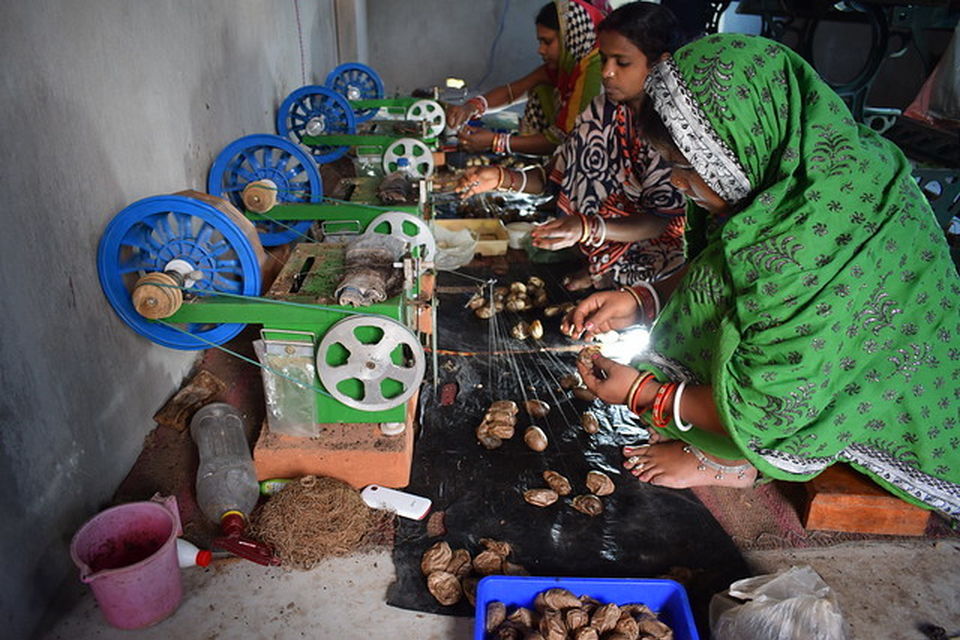

Silk production is the largest generator of rural employment in India, after agriculture. But the country still imports a third of the silk it consumes. Swapping these imports with Indian-produced fabric could create millions of rural jobs – however, the country’s silk reeling and weaving techniques are often inefficient.
This mean workers, mostly rural women, struggle to produce silk in large volumes and make a good living, and their health suffers too. They also often lack the resources and negotiating power to market products or grow their business.
Resham Sutra designs, manufactures and commercialises machines for silk yarn and fabric production in states across India. The company has developed 12 types of machine, in collaboration with India’s Central Silk Board, that perform different functions along the yarn and fabric production chain: reeling, twisting, spinning and weaving.
Most are solar powered, and they are up to ten times more energy-efficient than competitors’ models – often unreliable motorised machines that are useless during India’s frequent power cuts. Resham Sutra’s machines help producers improve their productivity, income and health, particularly when they replace the harmful process of thigh-reeling. This is an arduous and painful task, causing cuts and infections to worker’s thighs and hands.
Most of Resham Sutra’s work supports the processing of silk from Tussar cocoons. Tussar reeling and weaving is typically done by poor, single-industry communities in remote, forested places. Resham Sutra’s machines are a truly grassroots solution to the problems faced by these communities. The impetus and initial designs for the machines came from local people, and they are constantly improved, with upgrades guided by user feedback.
In many cases, Resham Sutra’s technology is more than doubling productivity and income for those at the base of the textile supply chain. Women are able to re-invest in their business, often for the first time. They are able to purchase cocoons wholesale, rather than in small amounts, and can sell the yarn to weavers directly. This is not just improving livelihoods; it is placing greater autonomy and negotiating power in the hands of rural women – one of the most important, and overlooked, dimensions of economic empowerment.
Resham Sutra marshals an ecosystem of finance providers, NGOs and government partners to ensure the machines are affordable and supply chains run smoothly. The machines are mostly distributed through partners, who bring part or total funding, or help facilitate other financing. Resham Sutra has capitalised on significant government support for this industry. Over 70% sales to date have been eligible for a government subsidy, which Resham Sutra often helps facilitate for communities.
Resham Sutra recognises that technology is only part of what’s needed to give poor rural people a better life. They have built in holistic support for their customers, helping them access raw materials and find markets for their products. This draws on Resham Sutra’s strong network within the textile industry – which includes cocoon producers, retailers and India’s Central Silk Board.The companyalso places great emphasis on long-term maintenance and training.


